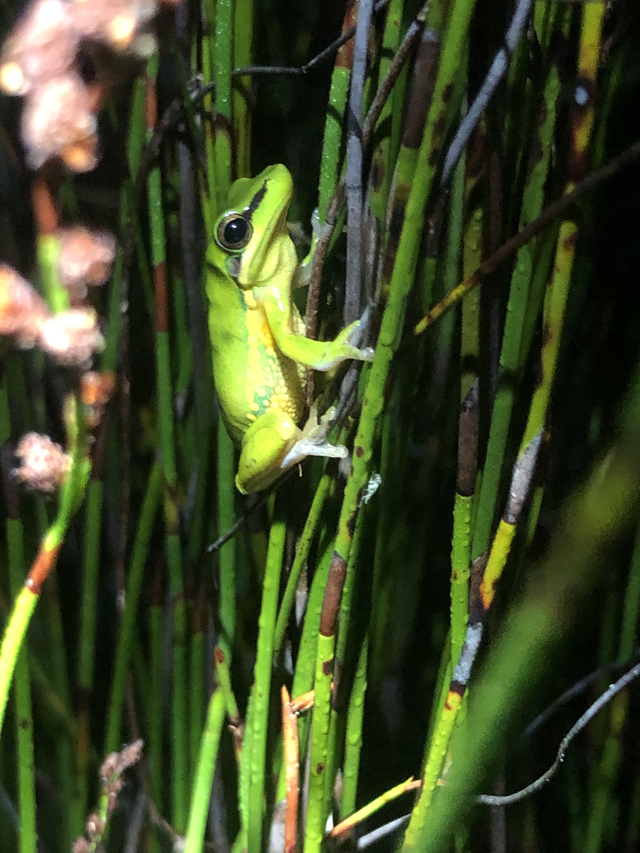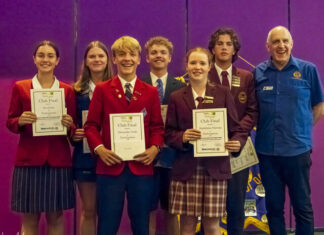On World Frog Day (Wednesday 20 March) a Sunshine Coast community celebrated the results from its annual frog survey, which shows its efforts to rehabilitate the Acid Frog habitat has led to an increase in breeding activity over the past 12 months for the protected species.
New data has shown that over the past year in Stockland Aura, the size of the habitat to support the vulnerable Wallum Sedge Frog (part of the Acid Frog species) has increased by an additional 18 hectares, which is 180,000 square metres, or the equivalent of 144 Olympic swimming pools.
Over the past 12 years, the Wallum Sedge Frog initiative has seen the creation of over 150 carefully crafted frog ponds providing frog ‘stepping stones’ along designated movement corridors in the Stockland Aura masterplanned community, on the Sunshine Coast.
Stockland senior development manager, Mark Stephens said by incorporating strategically located wetlands across this conservation land as part of Aura’s design has helped to protect and support the breeding of the vulnerable Wallum Sedge Frog (Litoria olongburensis), as well as other Acid Frog species.
“Over 150 hectares of the 700 hectares of future conservation lands at Stockland Aura has been earmarked as important habitat rehabilitation for Acid Frogs, which includes specially constructed wetlands and foraging areas. The former pine plantation lands were heavily degraded and it’s great to see the rehabilitation efforts deliver strong results and a place where these frogs can call home,” Mr Stephens said.
“Now that we’re making good progress in rehabilitating the land, we are seeing Acid Frogs not only return to the wetlands but also breeding, which is a really exciting marker of the rehabilitation program.
“When compared to our surveys in February and March of 2023 our researchers have reported the habitat supporting the Wallum Sedge Frog has increased by 18 hectares over the past year — that’s 180,000 square metres, or the equivalent of 144 Olympic swimming pools — of additional frog habitat.
Renowned frog habitat restoration expert Dr Mark Bayley, who has worked closely with the Stockland team since 2012, said that to his knowledge, habitat for the Wallum Sedge Frog has never been successfully created on this scale, with the Stockland Aura project representing the largest Wallum Sedge Frog habitat recreation project using methods pioneered by the project team.
“Acid Frogs prefer a wetland that only holds water some of the time and has a unique type of water, one that is naturally low in pH and high in tannin levels. Prior to this project little was known on how this water occurred, or rather, how it was ‘made’,” Dr Bayley said.
Through experimentation, Dr Bayley with the support of the research team, uncovered the delicate interplay that creates these ‘just right’ conditions.
“After numerous soil and water interaction experiments, it was discovered that high organic matter drives pH down within wetlands and clay aquitards across the site can hold the water in the ponds for about the right time.”
Despite Acid Frog habitat often taking up to five years to establish the proper vegetation and water quality to successfully house the species, the Aura frog ponds, some of which were created only two years ago, are showing early signs of success.
“Annual surveys conducted over the past two years have documented the highest number of Acid Frog species within the movement corridors and created ponds to date,” Dr Bayley said.
Mr Stephens said with Stockland’s two decades of experience in sustainable community development on the Sunshine Coast, the team is delighted with the results.
“Through the collaborative effort of working with the community, environmental groups and international experts, we are confident we are rehabilitating the old, degraded pine plantation land into a functioning ecosystem for frog species – all of which will form permanent conservation lands once the Stockland Aura development is complete.”








